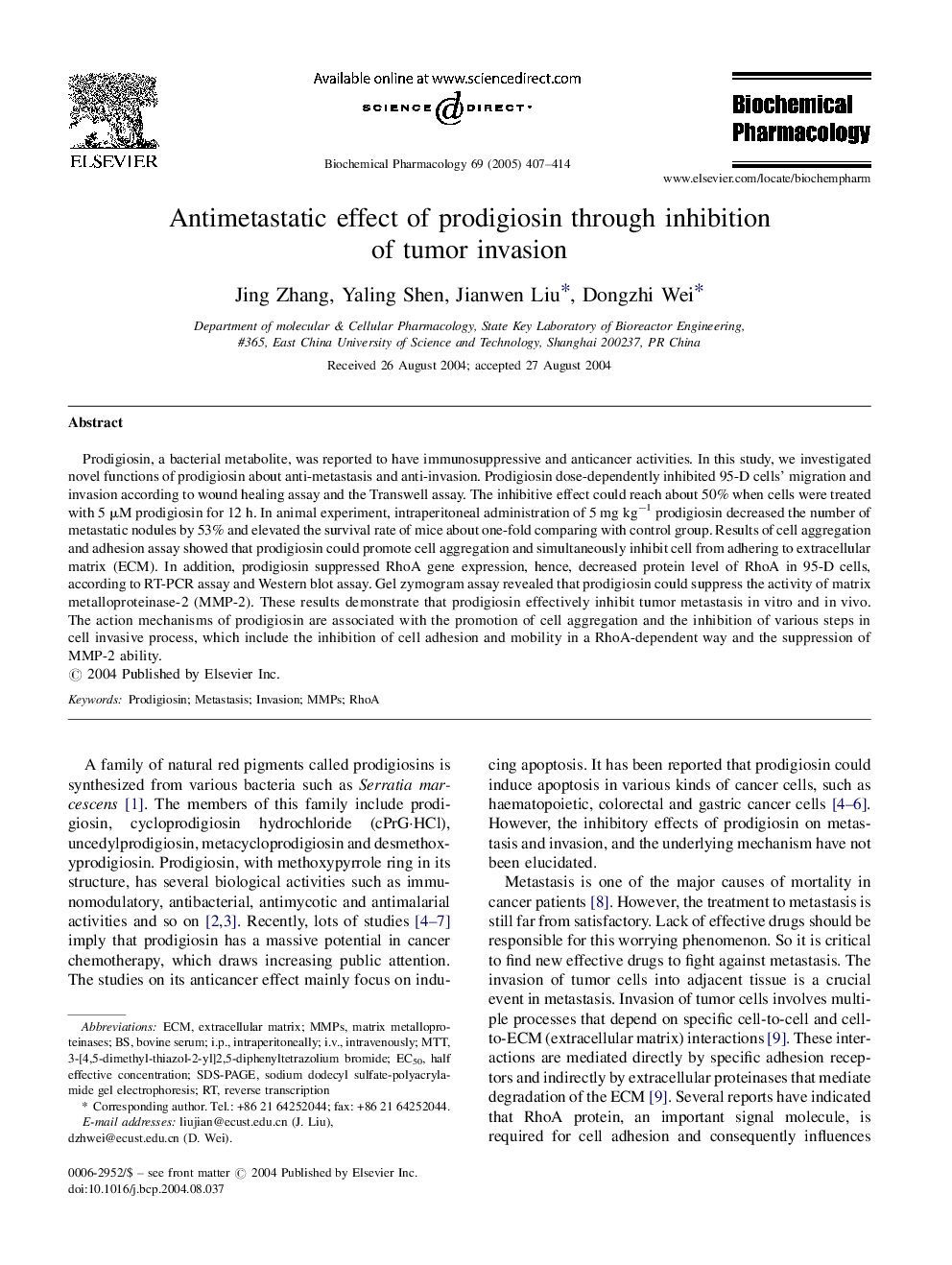| Article ID | Journal | Published Year | Pages | File Type |
|---|---|---|---|---|
| 9002171 | Biochemical Pharmacology | 2005 | 8 Pages |
Abstract
Prodigiosin, a bacterial metabolite, was reported to have immunosuppressive and anticancer activities. In this study, we investigated novel functions of prodigiosin about anti-metastasis and anti-invasion. Prodigiosin dose-dependently inhibited 95-D cells' migration and invasion according to wound healing assay and the Transwell assay. The inhibitive effect could reach about 50% when cells were treated with 5 μM prodigiosin for 12 h. In animal experiment, intraperitoneal administration of 5 mg kgâ1 prodigiosin decreased the number of metastatic nodules by 53% and elevated the survival rate of mice about one-fold comparing with control group. Results of cell aggregation and adhesion assay showed that prodigiosin could promote cell aggregation and simultaneously inhibit cell from adhering to extracellular matrix (ECM). In addition, prodigiosin suppressed RhoA gene expression, hence, decreased protein level of RhoA in 95-D cells, according to RT-PCR assay and Western blot assay. Gel zymogram assay revealed that prodigiosin could suppress the activity of matrix metalloproteinase-2 (MMP-2). These results demonstrate that prodigiosin effectively inhibit tumor metastasis in vitro and in vivo. The action mechanisms of prodigiosin are associated with the promotion of cell aggregation and the inhibition of various steps in cell invasive process, which include the inhibition of cell adhesion and mobility in a RhoA-dependent way and the suppression of MMP-2 ability.
Keywords
Related Topics
Health Sciences
Pharmacology, Toxicology and Pharmaceutical Science
Pharmacology
Authors
Jing Zhang, Yaling Shen, Jianwen Liu, Dongzhi Wei,
